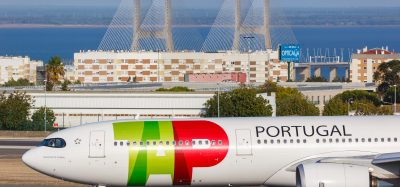ECA Statement on Malaysian Airlines MH17
- Like
- Digg
- Del
- Tumblr
- VKontakte
- Buffer
- Love This
- Odnoklassniki
- Meneame
- Blogger
- Amazon
- Yahoo Mail
- Gmail
- AOL
- Newsvine
- HackerNews
- Evernote
- MySpace
- Mail.ru
- Viadeo
- Line
- Comments
- Yummly
- SMS
- Viber
- Telegram
- Subscribe
- Skype
- Facebook Messenger
- Kakao
- LiveJournal
- Yammer
- Edgar
- Fintel
- Mix
- Instapaper
- Copy Link
Posted: 28 July 2014 | The European Cockpit Association | No comments yet
The European pilot community shares the concerns of the international stakeholders and reiterates the need for a thorough and independent investigation of the circumstances surrounding the loss of Malaysian Airlines MH17…


The European pilot community shares the concerns of the international stakeholders and reiterates the need for a thorough and independent investigation of the circumstances surrounding the loss of Malaysian Airlines MH17. ECA considers this as a non-disputable prerequisite that should be ensured at all costs. At the same time, this event places the ability of the industry to adequately assess risks and the principles of flying over conflict zones under intense scrutiny. As pilots and safety professionals we cannot disregard one fundamental question “What could have been done and can be done in the future to prevent this sort of tragedy?”
“We share the public outrage over MH17, and we owe it to the passengers and crew who lost their lives, and all our future passengers, to see past this and focus on prevention first and foremost,” says Nico Voorbach, ECA President. “MH17 exposed a significant weakness – if not a failure – of international threat and risk assessment in civil aviation. In hindsight flying civilian aircraft over an area where powerful anti-aircraft systems capable of bringing down an airliner at cruising altitude are in active use is not acceptable. So the question is what went wrong and how do we fix it?”
At first sight, appropriate risk assessment apparently DID occur in the case of Ukraine. But it only worked for the carriers of some countries. The fact that some airlines had been avoiding the area based on their own assessment for weeks begs the question “why?”. It appears that some airlines have the possibility of very good intelligence and advice from the most powerful national security services. It is not right that some countries may provide privileged risk assessment and advice to their carriers, whilst others are left at greater risk. After all, this is about people’s lives, not national silos.
Additionally, it would seem likely that some restrictions may be placed on what intelligence an airline can share with other airlines and stakeholders. We must ask governments what those restrictions might be, and how we can ensure that the airlines are able to share information in such a way that the highest levels of risk avoidance can be rolled out to all.
There may also be cases where there is some economic or commercial pressure for airlines to use privileged intelligence information to either fly more directly where it is safer in reality than commonly thought, or to avoid areas where it is less safe than widely understood. We would urge stakeholders to develop means to share this sort of security information for the benefit of all, in a way that excludes commercial considerations.
Given that the only body currently able to close airspace is the nation state that ‘owns’ it, we need a system that does not rely on what may be a war-distressed country conducting an honest self-appraisal of its own risks. They are the last body to be in a position to do this accurately. This is why we suggest an international approach that allows operators to risk assess and avoid efficiently rather than relying on external decision makers.
The MH17 accident and/or criminal investigation may be compromised and the crash site treated shamefully. But the question of prevention, and what should have happened but did not, is not wholly dependent on the investigation. These faults require our immediate attention and our long-term thinking. Therefore Europe’s professional pilots are urging a thorough analysis of the industry’s approach to risk assessment, high level international intelligence sharing, and ultimately preventing tragic avoidable events like MH17.

















